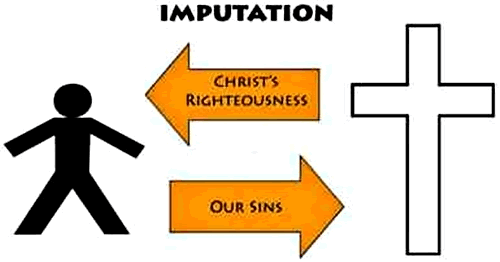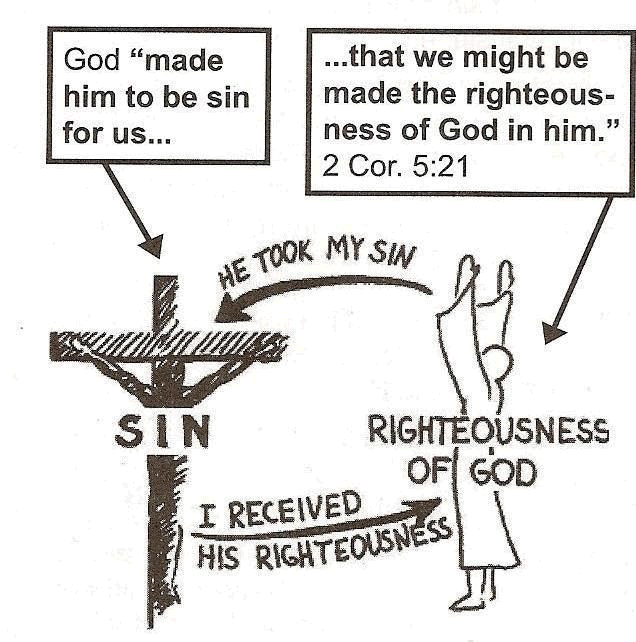How are we saved? By accumulating “good works,” or by receiving “imputed righteousness” in response to our faith? Maybe this traditional question, so often seen as dividing Catholics and Protestants, is the wrong one to ask.
A Roman Catholic friend (and a good theologian) recently asked me whether the Greek Fathers of the Church understand the term “righteousness” in a forensic sense. He was referring to a Protestant doctrine that holds that God does not “make” us righteous; He “declares” or “counts” us righteous. That is, God imputes righteousness to us, while we remain in a state of sinfulness. Simul iustus et peccator, Luther would say: at once justified and sinful. Reading, for example, St Paul’s letter to the Romans, my friend asked, do the Eastern Fathers also read the notion of “righteousness” forensically? Well no, I thought. But then I had to formulate something of the reason why. After a lot of stumbling, this is what I passed on to him.
The Protestant notion of “imputation,” (as I understand it) grew out of the conviction that we are inherently (by nature) incapable of making ourselves righteous; we cannot become truly just on the basis of our own good deeds or merits. Insofar as the qualities of justice and righteousness are attributable to us, we should understand that God imputes them to us as an expression of His mercy. This God does so that we can re-enter the realm of His righteousness, His holiness, and thus be saved from the consequences of sin, which is (eternal) death. This interpretation, however, as many people have pointed out, means that our righteousness is little more than a legal fiction. God treats us as if we were just or righteous, although He (like us) knows full well that we are not.[1]
The difference between this notion and the Orthodox perspective is well illustrated by our respective interpretations of Romans 5:12. In the West, at least in the popular mind, the debate was long polarized between Catholic emphasis on salvation through “works-righteousness,” and Protestant insistence on “justification by faith (alone!).” The presupposition underlying both views is that we inherit Adam’s guilt, which resulted from his sinful disobedience to the divine commandment.2 St Augustine seemed convinced that the guilt resulting from Adam’s sin is transmitted through the sexual act, from generation to generation, like some deleterious gene. This “original sin” must be removed if we are to be saved from death, to share in eternal life. The question as to how this is accomplished has received many different answers. Medieval Catholic piety held that this occurs through infused grace, which confers upon us the power to perform righteous deeds and thereby actually to become or be made righteous. This enables us to build up a “treasury of merits,” the term “merit” being understood as a gift of divine grace rather than our own accomplishment (Council of Trent, 1547). The popular notion that we are saved only if our merits outweigh our sins on the scales of divine justice is usually attributed to Roman Catholics. It is shared, nevertheless, by many Orthodox, who have failed to appreciate the fullness of God’s grace, both in enabling us to perform good works and in forgiving us fully when we sincerely repent of our sins.[3]
To the Greek Fathers, what we inherit from Adam is not his sin and consequent guilt, but mortality.4 From Adam (understood, really, as an archetype), we “inherit” the sting of death. Death has spread to all of humanity, as an inevitable consequence of our fallen nature; yet each of us, under the threat of death, rebels personally against God, the Author of Life. This means that our guilt is our own; we bring it upon ourselves. (A sign in our local marina declares: “You are responsible for your wake!” How true…)
Greek patristic tradition generally interprets the Pauline notion of dikaiosyne as “righteousness,” rather than as “justice” in the forensic sense. That is, the term refers first to God’s own quality of righteousness, understood more as an expression of love and mercy than as one of divine justice that must be “satisfied.” Through the indwelling Holy Spirit, followers of Christ are capable of receiving that divine righteousness as a gift—one that can actually work a transformation in human life by enabling us to pray, to wage spiritual warfare against the passions, and to love both God and other people. Human nature (ousia) remains “fallen”; but the human person (hypostasis) is led by the Spirit on a pathway of sanctification.
In the Eastern perspective, there is no thought that we must accumulate merits in order to justify ourselves before God, although our faithful often seem (as evidenced in Confession) to feel that if we are to be saved, our good works must outweigh our sins. Nor, on the other hand, is there a denial of the place and importance of good works in Christian life (Ephesians 2:8-10!). Salvation is accomplished by grace in response to faith. But that faith cannot be passive; it must express itself, not merely by confessing Jesus as “personal Lord and Savior,” but by feeding, clothing, visiting and otherwise caring for the “least” of Jesus’ brethren (Mt 25).
What we are saved from is the key issue here. Rather than view salvation primarily as a forensic liberation from guilt through imputed or imparted righteousness, we should see it as incorporation, by baptism, into Christ’s death and resurrection, such that we “die and rise” with Him. Thus we are saved from Death. We are freed from this ultimate consequence of sin and guilt—but only as a divinely bestowed gift of God’s ineffable love, expressed in the suffering death of His Son, a gift to which we respond with faith that issues in love. That response, through the action of the indwelling Spirit, enables us finally to share in Christ’s own resurrection and glorification, attaining what the Greek Fathers call theôsis or “deification” (which means existential participation in God’s life, and not ontological confusion between God and His human creatures).[5]
Good works should thus be understood to be a response rather than a means to salvation. And God’s righteousness should be seen as a gift of loving, merciful, saving grace, rather than as a forensic tool, wielded in the service of divine judgment.
[1] D. Guthrie, New Testament Theology (Inter-Varsity Press, 1981, pp. 498-504) discusses various Protestant approaches to this question, including the distinction between “imparted” and “imputed” righteousness.
[2] Modern dialog between Catholics and Protestants has gone beyond this focus on inherited guilt and is concerned more with the meaning of “justification.”
[3] The common view of merits as a means by which we put God in our debt (never sanctioned as dogma), together with the idea of inherited guilt, has been treated well and in detail in recent Catholic reflection. The Catechism of the Catholic Church (§ 404-409), for example, makes an important distinction between original sin as a “deprivation of original holiness and justice”—which renders human nature “subject to ignorance, suffering and the dominion of death, and inclined to sin”—and personal faults for which each of us is responsible. In this perspective, “original sin” is close to the Orthodox understanding of “fallen human nature.”
[4] E.g., John Cbrysostom, In Rom., hom. X (PG 60:474-5); Maximus the Confessor, Quaest. Ad Thal. (PG 90:408). An excellent summary of this issue can be found in J. Meyendorff, Byzantine Theology (Fordham University Press, 1974), pp. 143-146.
[5] “Communion in the risen body of Christ; participation in divine life; sanctification through the energy of God, which penetrates true humanity and restores it to its ‘natural’ state, rather than justification, or remission of inherited guilt—these are at the center of Byzantine understanding of the Christian Gospel.” J. Meyendorff, Byzantine Theology, p. 146.








